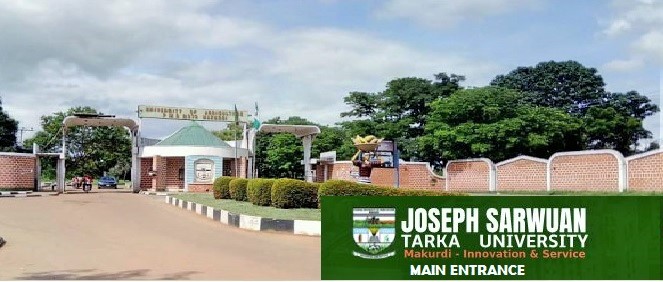A low-cost and automated irrigation system designed to scale down the plight of poor smallholder farmers in Nigeria is underway, just as the need for crop diversity in the face of changing climate through a new variety of cowpea to meet farmers’ quest for a sustainable legume production, has been stressed.
The new technology is designed to enable farmers grow crops all-year-round, thereby increasing food production and reducing food costs. The battery-powered technology was built by a team of students, who have now graduated from the University of Abuja (UniAbuja) and presented at the 2021 Mzuzah Sustainable Project competition aimed at “inspiring the next generation of African leaders”. At the moment, unpredictable weather patterns, such as erratic rainfall and extreme climate conditions, have disrupted planting and harvesting seasons, leaving more farmers to grapple with crop failures and poor yields that exacerbate food insecurity. Although, a couple of automated irrigation systems have been developed to solve the food crisis in Nigeria and Africa in general, but smallholder farmers, who constitute majority of the poor, cannot afford them.
In 2021, five UniAbuja students, led by Moses Oluma from the Department of Electrical Engineering, joined forces to develop the battery-powered irrigation system to increase crop yields and improve resilience to climate shocks. “I saw the challenges smallholder farmers in the communities around the university. They can’t farm during the dry season, and the modern irrigation systems are very expensive. That was why I assembled the team and came up with this device to help farmers. Two of us were from the Electrical Engineering Department, another two from the Agriculture Department and the fifth team member was a Chemical Engineering student”, Oluma disclosed.
He explained further that his team used affordable sensors that could read parameters as to when the soil is lacking a particular level of moisture. Thereafter, the sensor sends the reading to the other end of the system, where a water reservoir is installed, and the exact water needed is released to the crops through a network of conduit pipes. “It works automatically, with or without the farmers’ present on the farm. All that is required is to prompt the system. We have sensors in the soil that indicate when the moisture level is low and specify the water to be released for irrigation. Irrigation stops automatically when the appropriate moisture level is attained.
“We use batteries to make the device affordable to smallholder farmers operating medium-sized farms of 250-500 square meters. Solar power can be used, but it is expensive”, he stated. Oluma estimated that it costs N200,000 (about US$100) to install the system on a small farm, adding that the team would make a provision for an installment payment plan to make it accessible to as many farmers as possible. “The cost also covers installation and training of farmers. We are not really interested in making profits. We want to use the device to mitigate climate change and ensure food security. It has a warranty of five years and if it develops any issue during the period, our technicians will fix it for free. We are now at the stage of sourcing funds for commercial production”, he added.

In a related development, experts have made a case for crop diversity in the face of changing climate as ‘Alkam Super’, a new variety of cowpea, meets farmers’ quest for a sustainable legume production. The variety, known for its resilience and high yield, would support farmers in achieving sustainable legume production. The Chairman of the Technical Sub-Committee for Variety Release Committee in Nigeria, Prof. Ado Shehu, who led his team to assess fields and interact with farmers in Benue State over the Alkam Super variety, applauded the breeders team from the Joseph Sarwaun Tarka University, Makurdi (JOSTUM) for their exploits in cowpea development. Shehu called on other crop breeders at JOSTUM, formerly Federal University of Agriculture, Makurdi (FUAM), to emulate the cowpea researchers by developing other crucial crops like rice, maize and groundnuts to widen their scope.
The Professor noted that with cowpea breeding making remarkable strides, the Joint Implementation of the Legume Seed System Project with available grants could expedite research across a wider range of crops. “Our role is to inspect, observe and discourse with farmers about the development of new varieties in the fields. If the variety is good with breeders and not acceptable to farmers, it cannot be released. That’s why we discussed with the farmers to understand their perspectives about the new variety. The proposed variety might possibly, at the conclusion of our visit, be recommended in the next meeting of the Variety Release Committee in Nigeria”, he added. The Registrar of Variety Release Committee in Nigeria, Dr. Anthony Okere, said the new seed portal would also streamline access to approved varieties.
The Alkam Super variety, developed in the molecular biology laboratory of JOSTUM by a team of breeders led by Prof. Lucky Omoigui, is an improvement on what they have done. The Omoigui team began with FUMPEA 1, but farmers allegedly complained that the seeds were too small, which bought about an improvement that brought about to FUMPEA 2, 3 and 4 before the current Alkam Super. According to the Head of the University’s breeding team, some of the cowpea’s outstanding characteristics include larger seeds, resistance to striga, a parasitic weed that devastates legume crops, and compatibility with inter-cropping. The lead agronomist on the breeding team and a seed system specialist, Dr. Teryima Iorlamen said, “Before the variety is released, the breeder has to follow the laid down principle.
We have tested this variety on station and all farms; meaning we have tested on campus and with farmers. There are some farmers that planted this variety and it is doing well … We have tested it with other farmers, done demonstrations and compared it with other varieties, it’s super. That is why we call it Alkam Super. So, the variety is adaptable to the environment and maximising the farm area”.
In the same vein, the Director of Seed Technology Centre (JOSTUM), Prof. Ngozi Odiaka, lauded the variety committee for assessing the new variety and hoped that they would facilitate its quick release to the market for the next cropping season. “I’m a farmer and we have produced two or three of these seeds, which they are harvesting now. Your contributions are invaluable”, Odiaka said. Two farmers, Kenneth Wasem and Peter James, confirmed the efficacy of the variety, saying the new variety produces more pods than the previous ones and that the leaves are also much, adding that from their past experience, the cowpea seed brought from the North did not yield well in Benue State, but “since we started getting the FUMPEAs from Prof. Lucky Omoigui, we are now doing commercial cowpea farming”.

